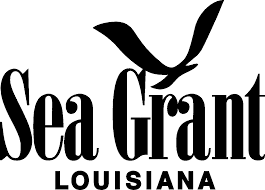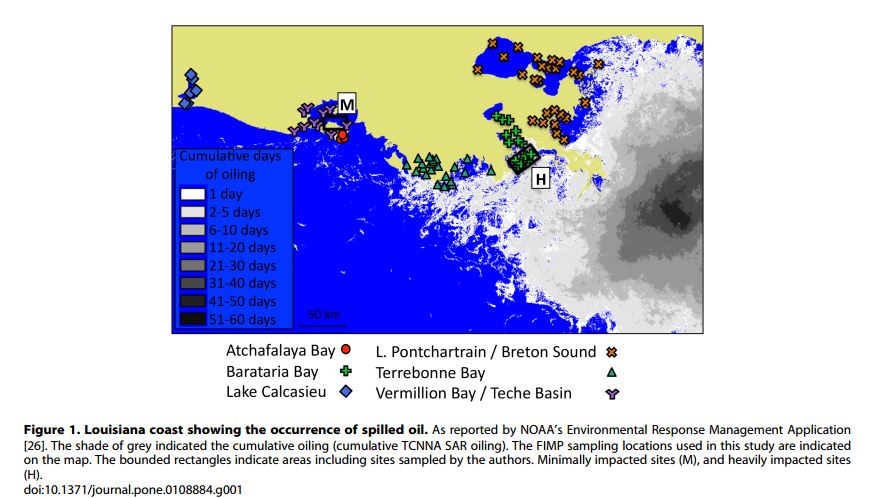
As a result of the Deepwater Horizon oil spill in April 2010, a large amount of spilled oil was introduced in the coastal estuaries of eastern Louisiana. To better understand the consequences of this event on important fisheries species, Dr. De Mutsert collaborated with Dr. Joris van der Ham in an ecological study funded by Louisiana Sea Grant.
The study found that shrimp abundances increased in areas that were affected by the spill, while mean shrimp size either did not change after the spill, or increased in both affected and unaffected basins. Drs. Van der Ham and De Mutsert propose two factors that may have caused these results: 1) exposure to polycyclic aromatic hydrocarbons (PAHs) may have reduced the growth rate of shrimp, resulting in a delayed movement of shrimp to offshore habitats, and an increase of within-estuary shrimp abundance, and 2) fishing closures established immediately after the spill, may have resulted in decreased fishing effort and an increase in shrimp abundance. This study accentuates the complexities in determining ecological effects of oil spills, and the need of studies on the organismal level to reveal cause-and-effect relationships of such events.
Publication: Van der Ham, J.L. and K. de Mutsert. 2014. Abundance and size of Gulf shrimp in Louisiana’s coastal estuaries following the Deepwater Horizon oil spill. PLoS ONE 9(10): e108884. doi:10.1371/journal.pone.0108884
Media coverage of the research can be found in the following articles by the Smithsonian, Nature, and ABC Environment.
